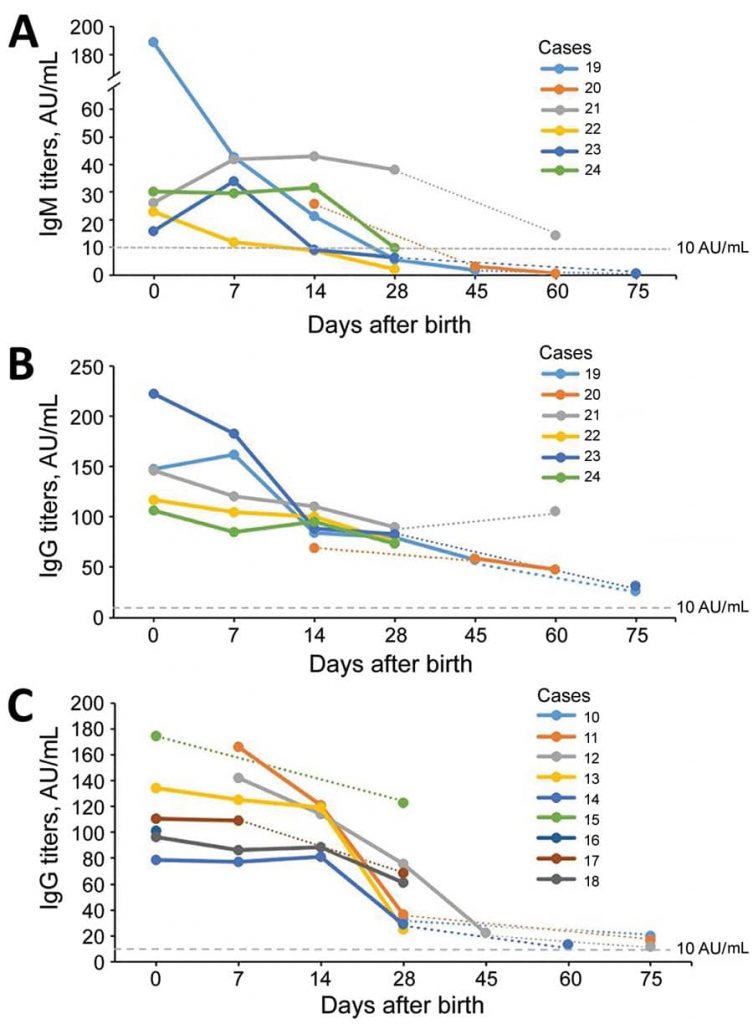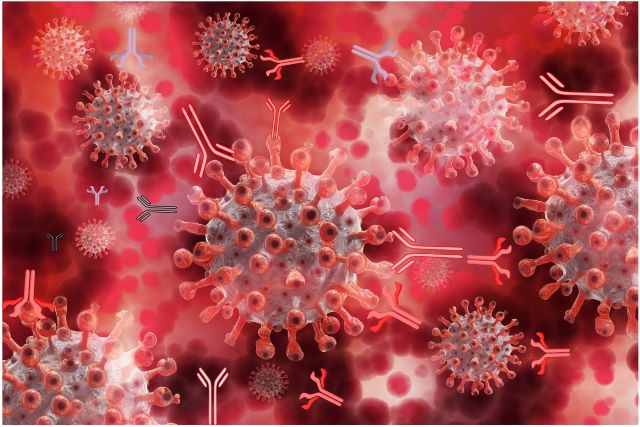A new study shows that COVID-19 antibody may not stay longer, particularly in infants. The study results were published in the journal Emerg Infect Dis on July 3, 2020.

The study was conducted in Wuhan, China. In the investigations, researchers evaluated (SARS-CoV-2)–specific antibodies, IgM and IgG, in 64 infants born to women who were admitted to Tongji Hospital from January 19–April 12, 2020.
Of all the 64 babies, 24 babies, with gestational ages ranging from 31 weeks to 41 weeks, were born to SARS-CoV-2-infected mothers. RT-PCR methods confirmed the infection. On the other hand, 40 infants (gestational age from 35 weeks, three days, to 41 weeks, three days) were born to women without COVID-19.
Of the 24 infants who were born to women with COVID-19, 15 (62.5%) had detectable IgG, and 6 (25.0%) had detectable IgM; nucleic acid test results were all negative. None of the 24 infants had complications related to pneumonia.
The investigators found that the IgG level gradually decreased in all15 infants with positive IgG. However, in babies who were IgM positive, IgG levels declined more slowly.
All babies had negative nucleic acid test results. The babies that were born to women without COVID-19, the results of nucleic acid tests from the throat and anal swab specimens, and the results of antibody assays were negative.
The study was limited by the small sample size. However, the findings show a rapid rate of decline in antibody titers, suggesting a lack of passive protective immunity in infants, and IgM detection in infants, supporting a growing body of evidence of possible vertical transmission, the study concluded.



















